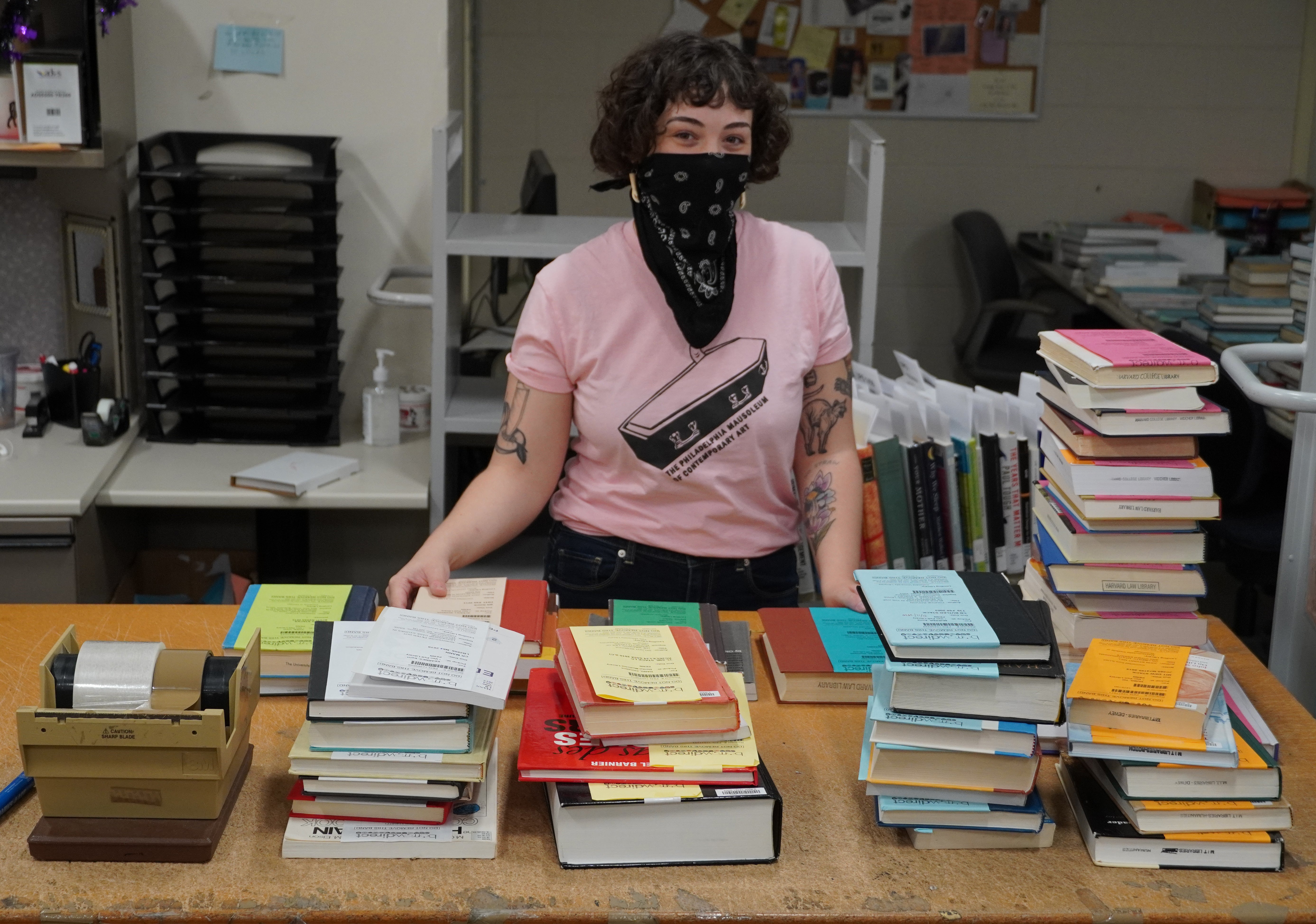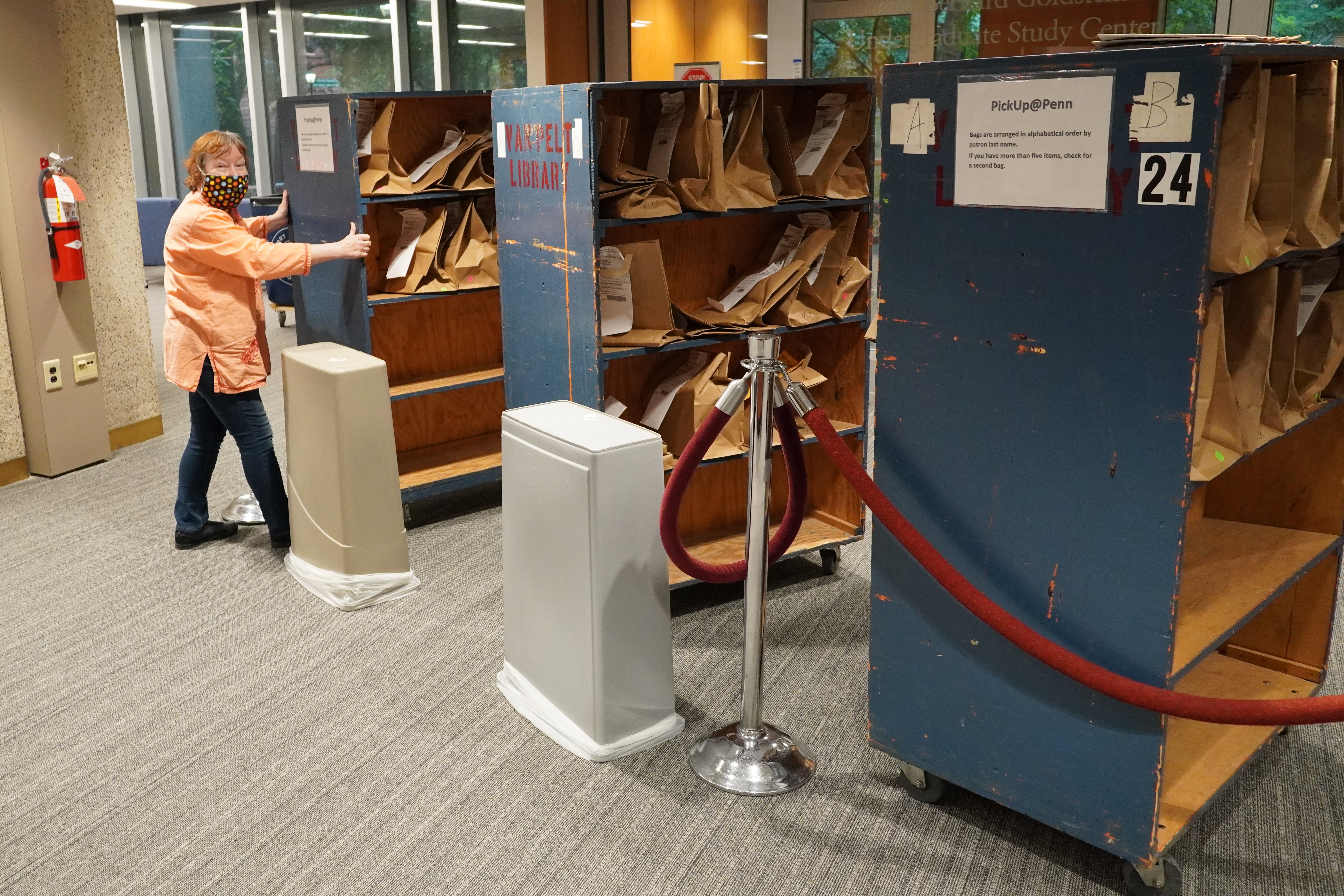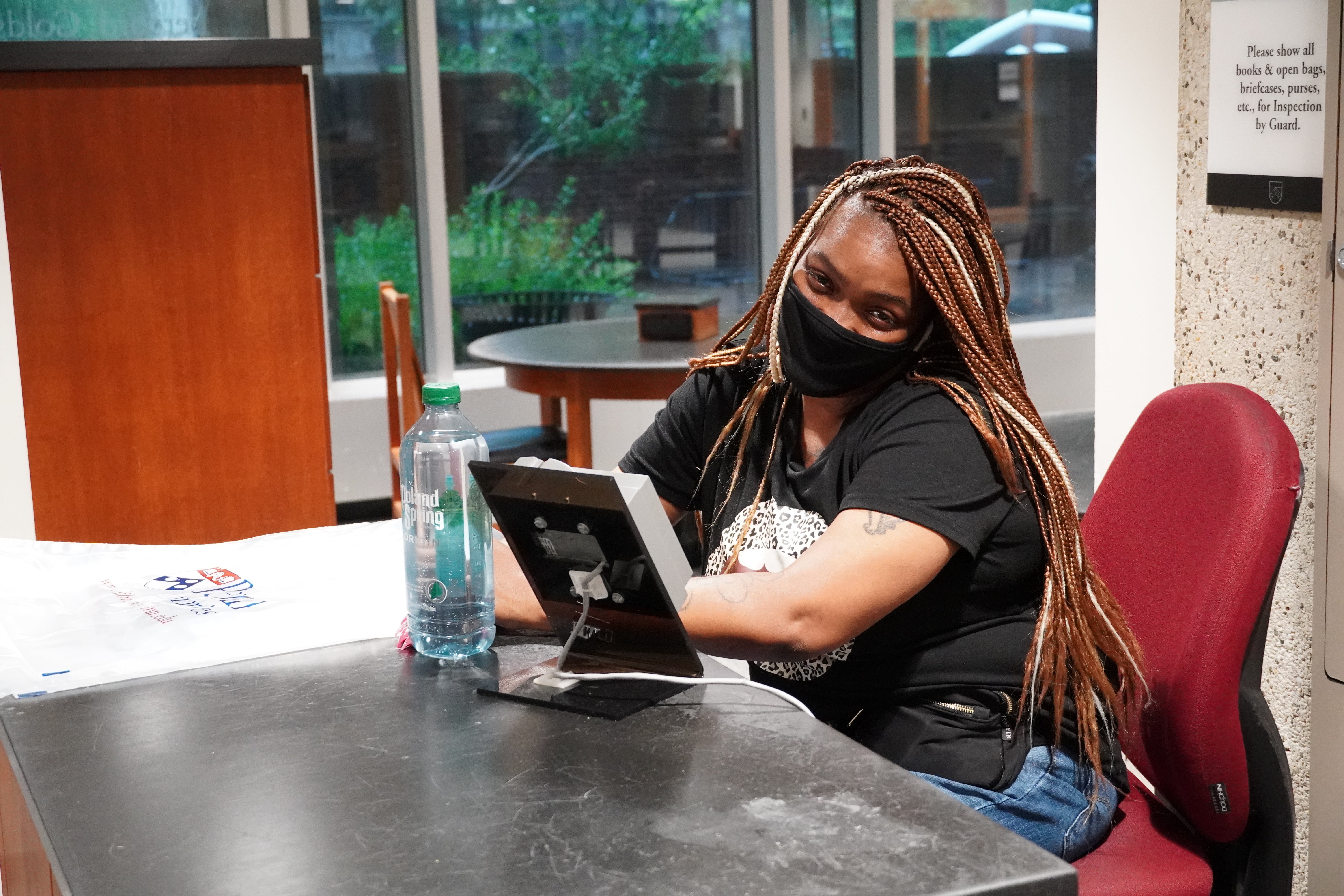Borrow Books Again! Penn Libraries Connects Patrons to Physical Collections with Delivery, Scanning, and Pickup Services

When campus closed in March, Penn Libraries staff mobilized, working long hours to render services and collections virtually accessible.
“To give a sense of how dramatic the shift was: we went from ordering a few dozen ebooks per month to ordering hundreds per week,” says Jeanne Shuttleworth, Director of Acquisitions, Access, & Licensing.
Since then, the Libraries has acquired approximately 75,000 new ebooks, streaming videos, and primary source materials and procured temporary electronic access to nearly 1.3 million items in the Libraries’ collections.
In recent weeks, staff mobilized again, this time to reconnect faculty and students with physical items in the Libraries’ collections which are currently unavailable in electronic form.
On July 7 — with extensive safety protocols in place — the Libraries premiered Pickup@Penn, a service which allows members of the Penn community to request books and pick them up at Van Pelt-Dietrich Library Center using their PennCards. Expanded versions of the Libraries’ Books by Mail and FacultyEXPRESS services launched the same day.
“I’m relieved and delighted to now have access to physical books to enhance my scholarship,” says Jenn Henrichsen, a doctoral candidate at the Annenberg School for Communication. “Books are like air for academics: we need them to breathe and to think deeply about the future contours of our research.”

Books by Mail is available to current Penn students, staff, and faculty. After completing online registration, eligible users can request that circulating materials listed as “available” in the Libraries’ Franklin catalog be shipped to their home address.
FacultyEXPRESS provides mailed delivery of books and documents for all standing tenured and tenure-track Penn faculty, with a cap of five articles per day.
In addition, the Libraries continues to offer its Digital Delivery service, whereby library staff can scan and deliver articles and book chapters from the Libraries’ collections for members of the Penn community.
Preparing to launch these services while ensuring staff welfare presented an enormous challenge. “In light of the ongoing public health crisis, the foremost consideration in launching access to physical collections was the health and safety of our staff and patrons,” says Jon Shaw, Associate Vice Provost and Deputy University Librarian.
Libraries workflows have been revised accordingly. Staff now rotate on-site days to keep the total number of people in the building to a minimum. Bottles of hand sanitizer are stationed throughout the library, and staff have been provided with full PPE kits. Each staff member has been assigned to a single floor with a private office to prevent face-to-face encounters. And, in order to eliminate material cross-contact, each staff member has also been assigned a personalized book truck.
“We’re happy to be hard at work, serving patrons again,” says Emily Batista, Acting Director of Access Services. As services unfold, Batista and her team will continually assess how to best meet user needs while guaranteeing the safety of staff and patrons alike.
For example, the PickUp@Penn procedure is staged to minimize material cross-contact and ensure social distancing. Additionally, all materials are quarantined — in accordance with the latest COVID-19-related public health guidelines — before being made available to patrons.

Since patrons cannot currently photocopy articles and chapters themselves, scanners have been moved from their central location and spaced throughout the building to maintain social distance; staff are being trained to field an anticipated influx of scanning requests for course reserves. Two rotating staff members are monitoring the Circulation inbox to respond to patron questions as quickly as possible.
And then there’s the challenge of prodigious backlogs. Prior to the last week of June, only one person at a time from the Access Services team was permitted inside Van Pelt-Dietrich Library Center to work through the backlog of returned books, a few thousand of which had been turned in since March.
“We wanted to check in as many as possible before launch so that they would be ready for borrowing,” says Batista. “We were never without things to do!”
“We also continued to grow our physical collections,” says Shaw. “We wanted to be able to provide our users with new materials when physical access was a possibility, so backlogs were inevitable.”
In the next few weeks Libraries staff will begin processing and cataloging those four months’ worth of new physical acquisitions. A rough calculation of the number of unprocessed books and serial volumes puts the total over 34,000 items.
“We’ll find clever workflows to help expedite our processing in order to make collections available as soon as possible,” says Shaw.
“It’s a difficult transition for us to not be able to automatically fill patron requests,” says Batista. “Given the backlog, the need to quarantine materials between loans, and the size of our skeleton staff, we can’t guarantee the same quick turnaround that we could before.”
Batista notes that Penn community members can check the latest status of loans and requests by logging into their Penn Libraries account.
Users have so far been understanding about operational limitations: staff members regularly receive messages of appreciation for what services the Libraries is able to provide. Batista likewise admires the dedication her colleagues have shown in supporting the University’s educational mission.
“The reason that we’ve been able to offer these resources is our staff’s commitment to service,” she says. “No matter the challenge, no matter the circumstance, we find a way to serve our community.”

Date
July 20, 2020
